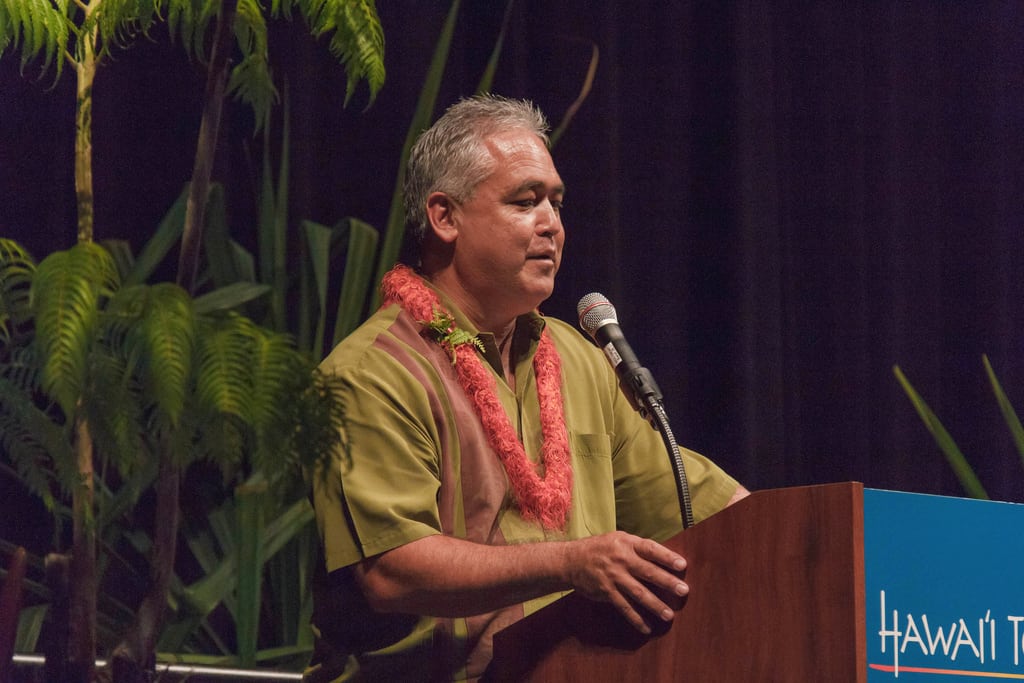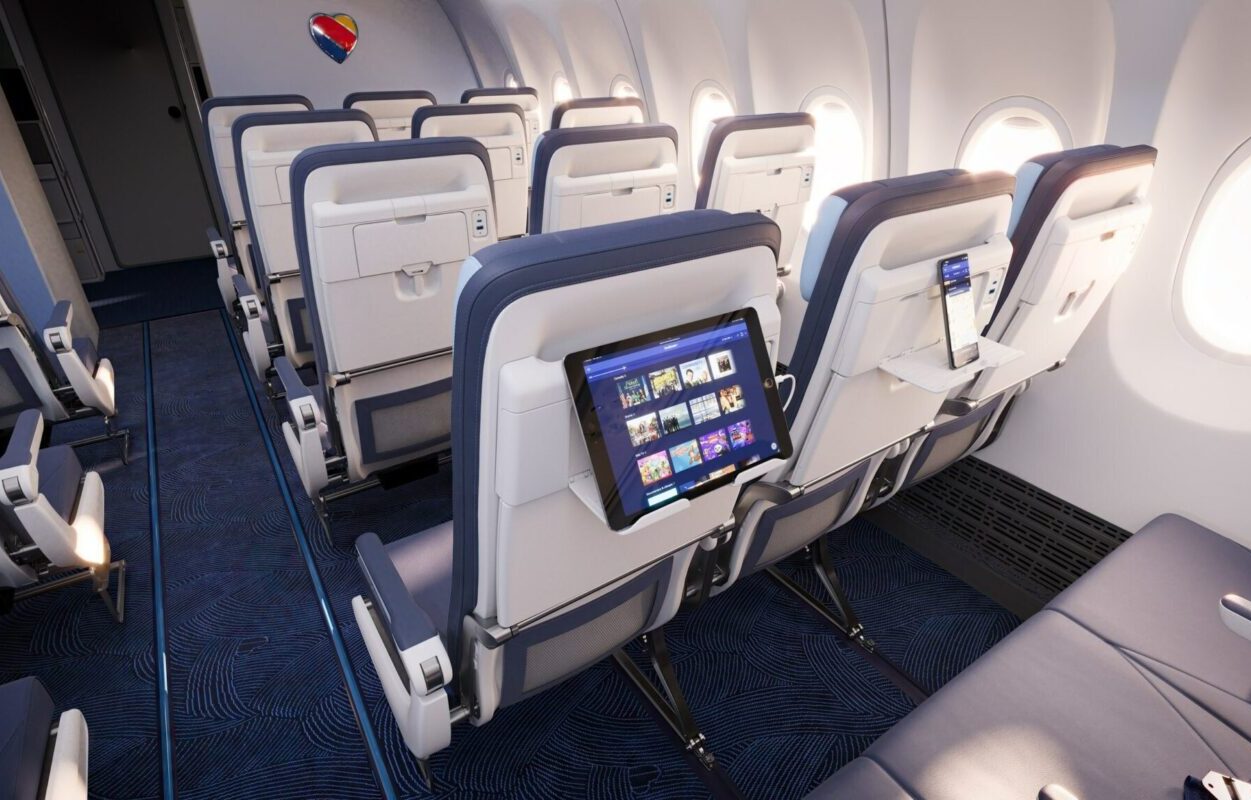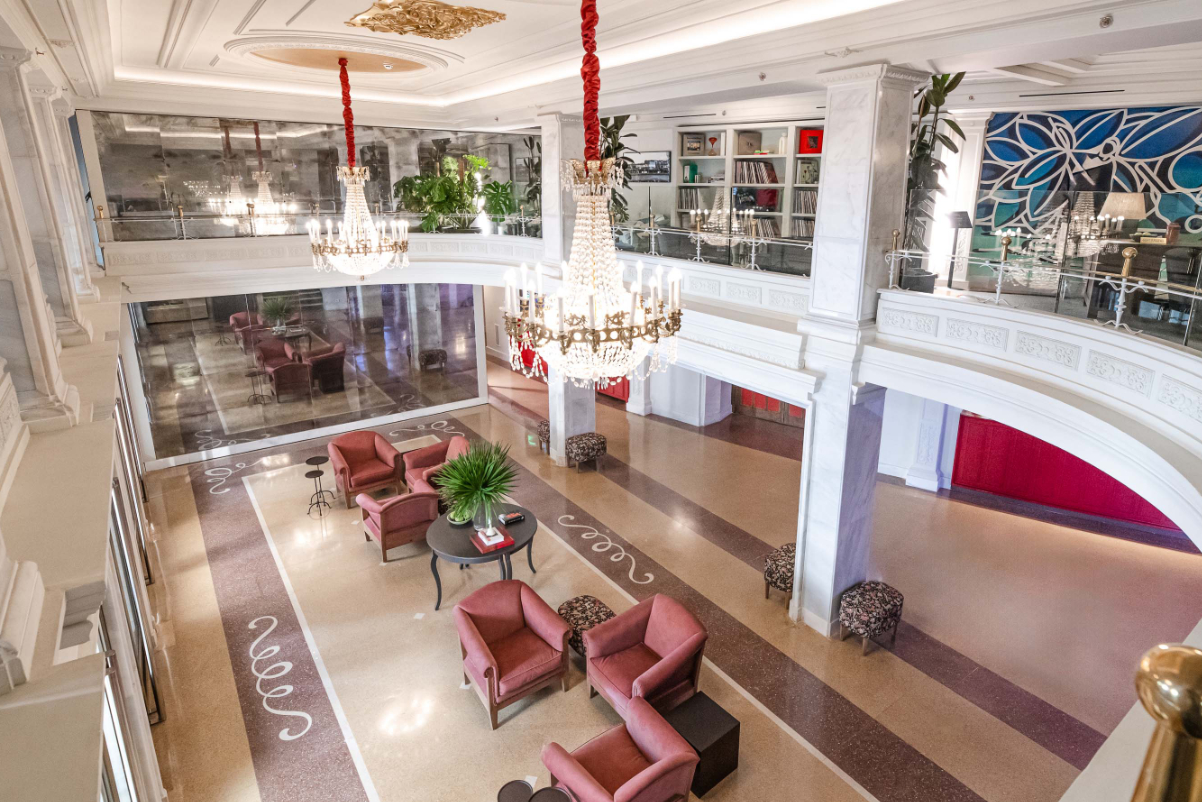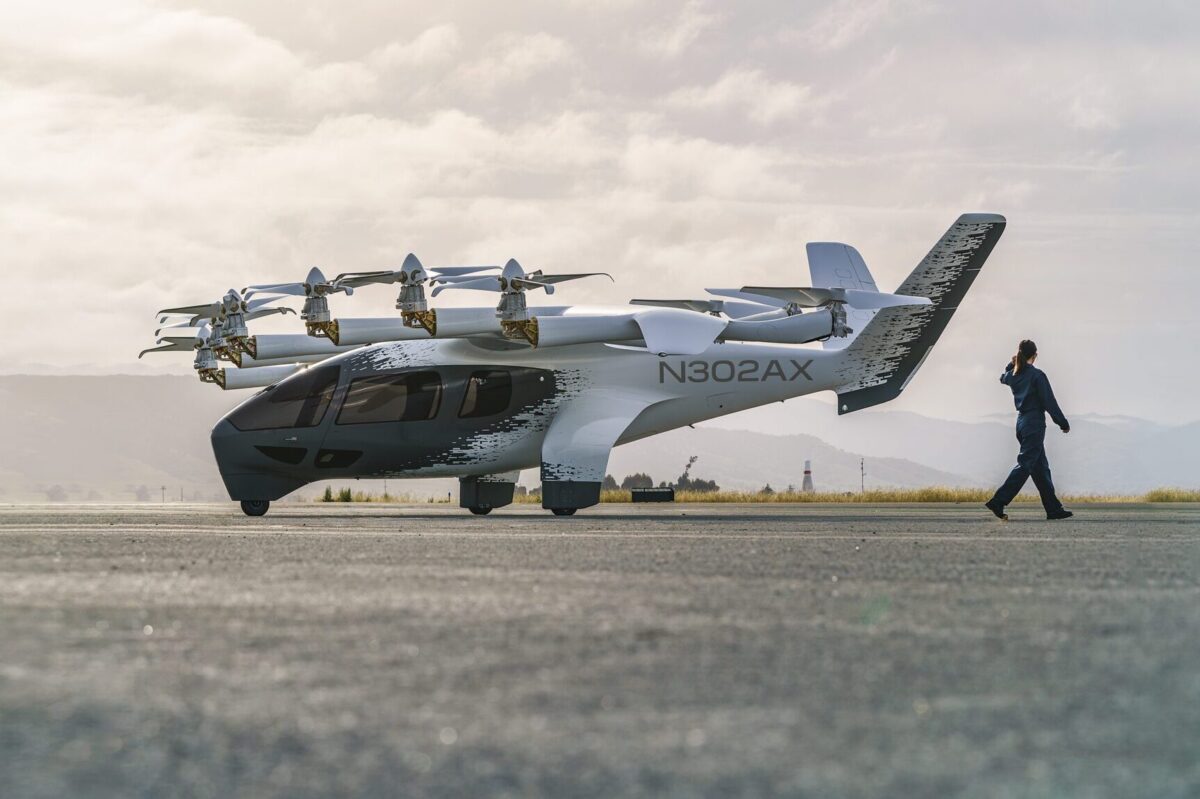CEO Interview: Hawaii Tourism Authority is Pivoting to Asia to Attract Chinese Travelers

Skift Take
Mike McCartney, CEO of the Hawaii Tourism Authority, brings a spreadsheet to the interview, as promised, so he can break down the expected economic impact of Hawaiian Airlines’ new three-times-per week Honolulu-Beijing direct flights.
We’re standing at a cocktail table April 17 at the Westin Beijing Chaoyang just outside an event to mark Hawaiian Airlines’ inaugural flight that morning, and McCartney has all the pertinent figures at the ready on the paper.
Let’s see: Those expected 45,864 seats per year at a 75% load factor would translate into $81.06 million in direct visitor spending, $134.32 million in sales (direct, indirect and induced), and $8.47 million in state government tax revenue.
The statistics all feed into what McCartney, a former Democratic state senator who’s led the organization for the past five years, describes as HTA’s pivot to Asia to balance out and grow Hawaii’s visitor mix, and to build the state’s meetings’ and incentives’ business.
With hotel rates and airfares in Hawaii on the rise, the HTA recently lowered its visitors’ estimate for 2014, and like airlines, hotels and tourism boards around the world, the HTA is looking to Asia, and the Chinese traveler, in particular, for rejuvenation.
And, the HTA is also working with the NFL to spur interest in football in China, and to attract visitors to Hawaii for the 2016 Pro Bowl.
Following is the Skift interview with McCartney:
Skift: I understand you’ve lowered your visitor expectations for 2014 to 8.4 million, from 8.7 million, with signs that visitor growth is plateauing. Since I’ve been out to Hawaii I’ve heard people talk about how hotel rates are skyrocketing and airfares are going up, and there’s so much competition. What can you guys do to regain some momentum?
McCartney: What we are continuing to do is to expand our major markets. We are pivoting to Asia, and feeding off what happened in the Asia-Pacific Economic Cooperation meeting in Hawaii. It helped us focus and improve as a destination that can host serious meetings. Our focus is to expand to Asia as a meetings, convention and incentive destination, and to diversify beyond the leisure market.
Hawaii is like a mutual fund. If you look at us we are diversifying our portfolio in major markets. China is very important as a major market. We have Korea, Japan, Australia, New Zealand. We are continuing to try and expand our portfolio to that region of the world so it can balance out.
Skift: Is that very much in coordination with Hawaiian Airlines?
McCartney: Yes. Not only Hawaiian Airlines, but all carriers. Hawaiian happens to be a very important partner for us. They hold our name. We are a destination that has an airline, not owned by us, that’s on the New York Stock Exchange that carries our name. That is priceless.
Skift: And Hawaiian Airlines’ first direct flights to Beijing? It’s only three per week. Will they have a big impact?
McCartney: That’s almost 50,000 seats so if you take 75% load factor that is 32,000 people. When you look at what this one flight can bring it, it can bring in $81 million to the State of Hawaii. That’s $8.5 million in state taxes. That supports over 900 jobs. For every 36 passengers that get off these planes this supports one job in a way. Overall as a destination, every 49 visitors that come off our planes support one job. The Chinese visitor, because of their spending, almost $400 per person per day, has a tremendous economic impact to Hawaii.
Skift: For the Chinese traveler, shopping is a major thing, for example. Does Hawaii have these sorts of things to entice the Chinese traveler?
McCartney: Yes. There are a lot of brand stores that align with the Chinese traveler, especially in Waikiki, the Ohana area, that are open to visitors from China. They enjoy that. You see that happening a lot.
Skift: What’s up with the Pro Bowl? Hawaii lost if for 2015 to Arizona?
McCartney: We have a long-term relationship with the NFL for 30 years. In any 30-year relationship things evolve and change. I think the league is looking at the game itself, how to change and improve the quality of the game. We as a destination want to look at how we can improve as a destination. Taking this one year off is a good thing.
We are committed for 2016, and 2017 we have an option. One of the things we want to work with the NFL on is pivoting to Asia. How do we introduce the NFL ,and be a part of it, to our friends from Asia. In China, Japan, maybe Australia, how do we bring those visitors to the NFL experience? So we are going to partner with the NFL to do that. So we need some time; 2016 is good. We wish Arizona all the best. They are a franchise city. Owners want the game there so that is what happened this year. The game is going to take place in the same city where the Super Bowl is.
Skift: What are some of the ways the NFL is exploring to appeal to Asia?
McCartney: What we are going to do with the NFL is that we are going to take the lead on bringing the visitors. So the tourism authority, working with our travel partners and wholesalers, we are going to put together packages for those individuals. So flights like this on Hawaiian (Beijing to Honolulu) are perfect. Now we can promote the game in Beijing.
Skift: There was a critical auditor’s report last year saying basically that the Hawaii Tourism Authority lacked a coherent strategy and wasn’t holding partners accountable enough on their spending. Did you agree with the report?
McCartney: Any audit is a good tool to help us get better. So we acknowledge the auditor’s report as a tool to help us improve. We have a 10-point internal plan that makes ourselves internally better. We are one of the few, if only agencies in the state, that every five years has this audit so it is a tool for us to get better. Every audit, we take a look at it to see how do we continuously improve.




